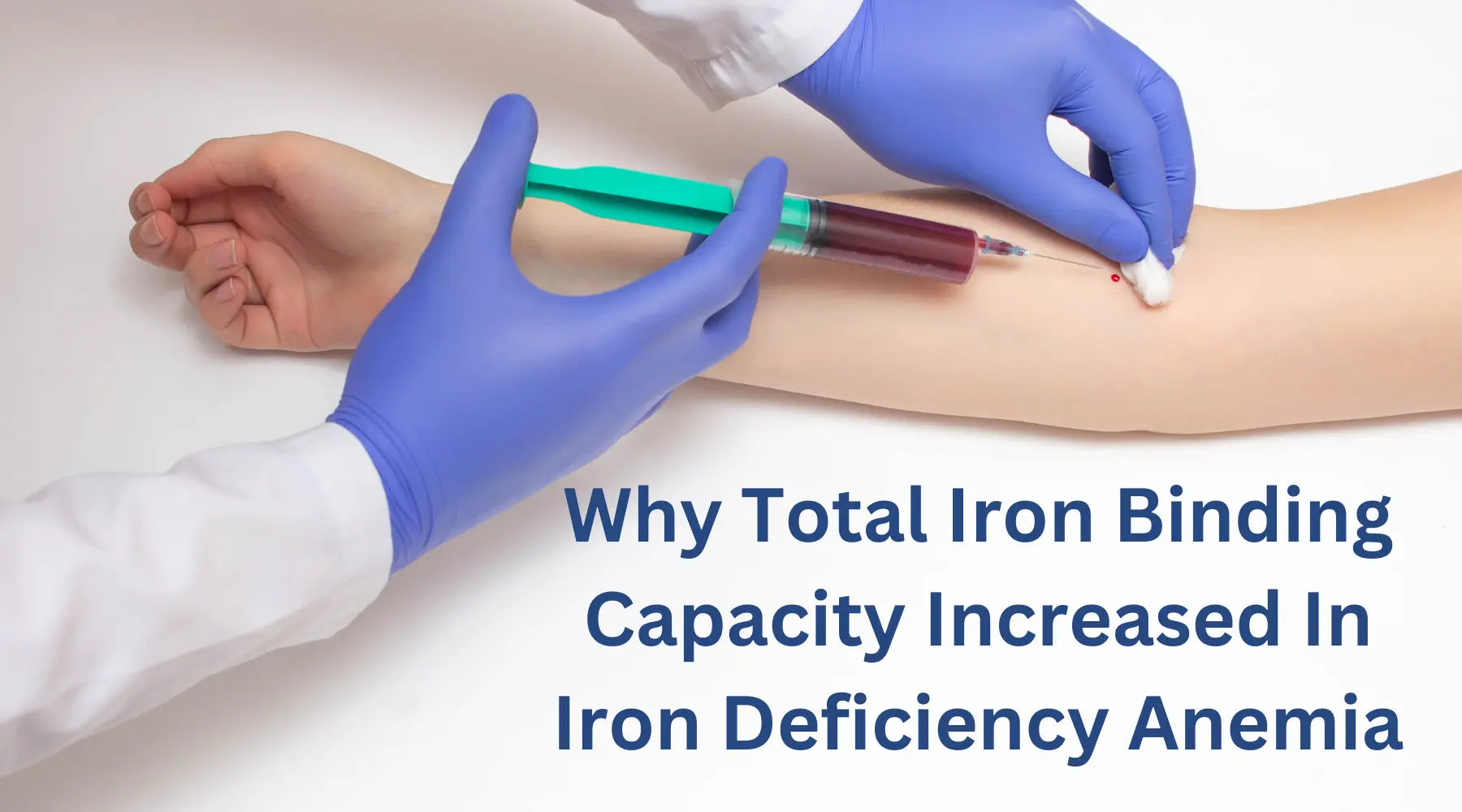 Fatigue, weakness, and other symptoms are common in iron deficiency anaemia, a disorder marked by a shortage of iron needed to create an adequate number of red blood cells. A blood test called the Total Iron Binding Capacity (TIBC) gauges the body's ability to bind and transport iron. Surprisingly, iron deficiency anaemia frequently results in higher TIBC levels. This blog article will explain this paradox and examine Shilajit's possible application in managing iron-deficient anaemia.
Fatigue, weakness, and other symptoms are common in iron deficiency anaemia, a disorder marked by a shortage of iron needed to create an adequate number of red blood cells. A blood test called the Total Iron Binding Capacity (TIBC) gauges the body's ability to bind and transport iron. Surprisingly, iron deficiency anaemia frequently results in higher TIBC levels. This blog article will explain this paradox and examine Shilajit's possible application in managing iron-deficient anaemia.
Total Iron Binding Capacity (TIBC): An Overview
TIBC gauges the maximum amount of iron the blood's proteins, particularly transferrin, can bind. It shows the body's capacity to move iron from its storage places to where it is required for several vital processes.
The Mysterious TIBC-Increase in Iron Deficiency Anemia
It may seem contradictory, but TIBC levels usually increase rather than decrease in cases of iron-deficient anemia. This is why:
The body's response to low iron levels is to increase TIBC, enabling it to absorb as much iron available from dietary sources as it can and recycle it.
Iron Uptake:
When the body's iron reserves are depleted, the gastrointestinal tract is more effective at absorbing dietary iron.
TIBC is frequently stated as a ratio known as transferrin saturation. This ratio decreases dramatically in iron deficiency anemia because insufficient iron can thoroughly saturate transferrin.
Shilajit's Potential Contribution to Iron Deficiency Anemia
Shilajit is a natural resin-like material that may be found in the Himalayas and is reputed to have health advantages. Shilajit contains several qualities that may be pertinent, while research into its effects on iron deficient anaemia is still ongoing.
According to specific research, Shilajit may improve dietary iron absorption, potentially treating the underlying cause of iron deficiency anemia.
Shilajit is frequently linked to increased energy and vitality, which can be helpful for people who are coping with the exhaustion brought on by anemia.
Shilajit's antioxidant capabilities could aid in lowering oxidative stress, which can increase the symptoms of anemia.
Conclusion
Although it may be confusing, the rise in Total Iron Binding Capacity (TIBC) in individuals with iron deficiency anemia is the body's response to low iron levels. The body seeks to maximize iron intake and use by raising TIBC.
Shilajit has promise as a natural supplement for treating iron deficiency anemia due to its ability to improve iron absorption, increase energy, and promote antioxidants. Nevertheless, it is crucial to utilize it cautiously and under a healthcare professional's supervision.
In conclusion, the mystery surrounding TIBC in iron deficiency anemia underlines the condition's intricacy and the body's unique capacity for adaptation. The prospective advantages of shilajit give hope to people looking for all-natural methods to treat iron deficiency anemia and enhance their general well-being.